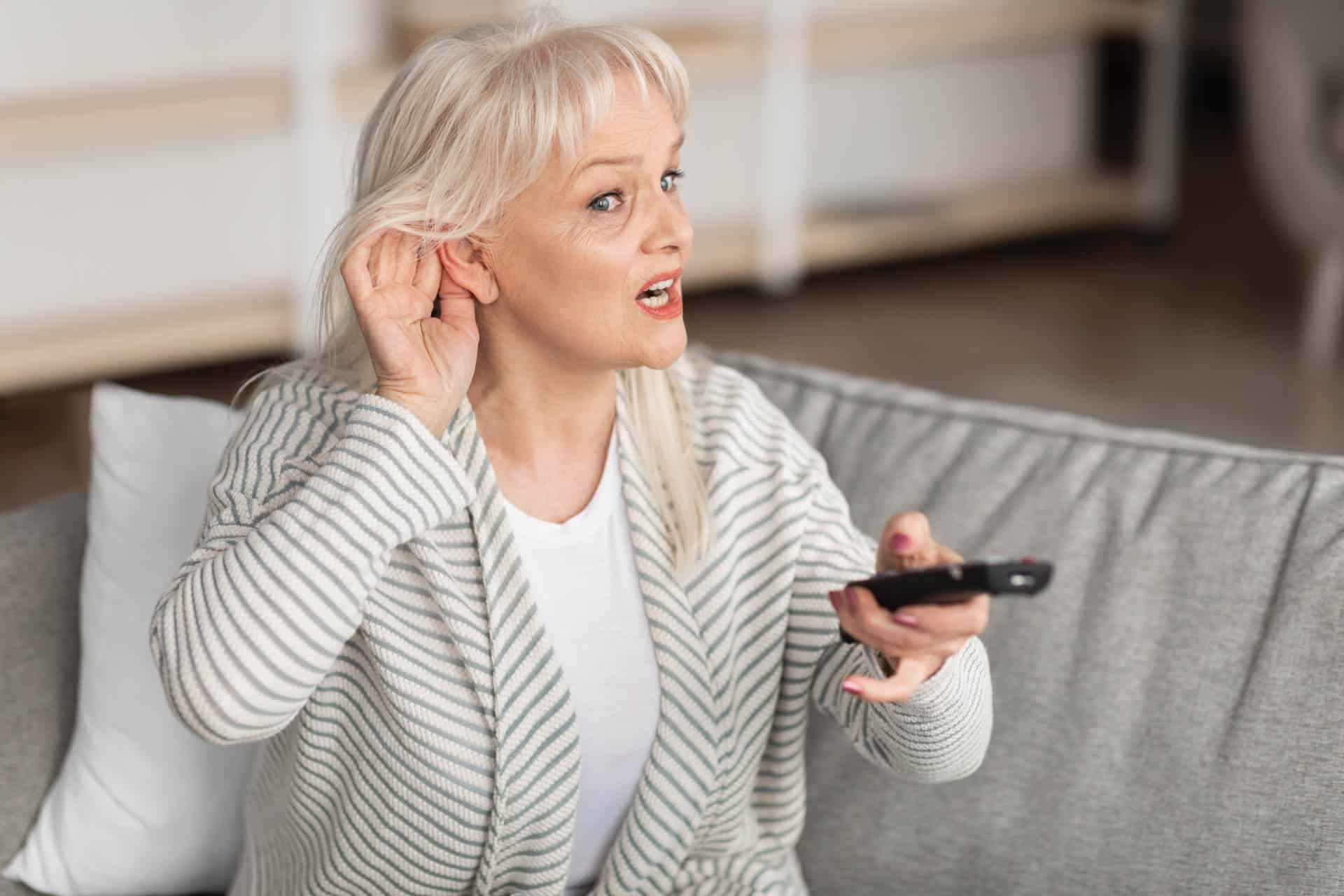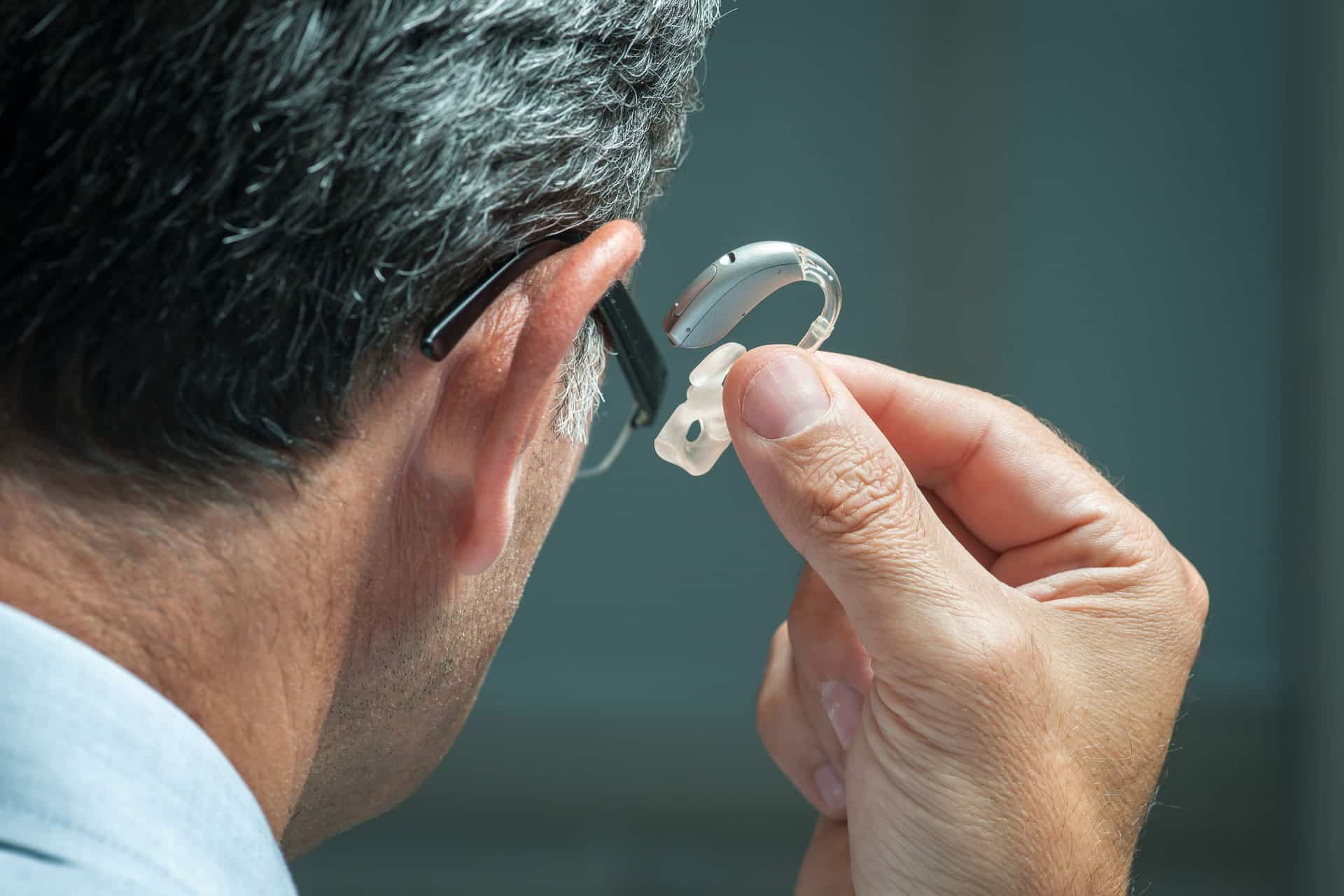269,00 €Add to cart
Television for seniors
Television is still one of the favorite pastimes of senior citizens today. But for older people in particular, it is not only their favorite entertainment medium, but also an important part of their daily lives as a source of information.
Seniors face increasing challenges as they get older, and this also applies to television. In this article, you can find out what problems seniors have when watching TV, what a senior TV is and what solutions and practical aids can make watching TV easier for older people.
These are the problems senior citizens have when watching TV
It is no secret that physical abilities, mobility, motor skills and general health often decline with increasing age. In fact, it is a natural development.
When it comes to television, two things often become a problem for senior citizens: age-related hearing loss and impaired vision. These impairments can very quickly spoil the fun of watching TV if you suddenly can no longer hear the sound or dialog on or can no longer see the images properly.
Age-related hearing loss
Age-related hearing loss, also known as presbycusis, is a hearing loss that does not occur due to illness, but as a result of the natural ageing process. Changes in the ear make it increasingly difficult for those affected to hear certain frequencies or, for example, to understand speech against background noise as they get older. This makes watching television particularly difficult for older people, as important acoustic information can be lost.
Presbyopia
The situation is very similar with age-related visual impairment. Many people's eyesight deteriorates as they get older. This is also referred to as "presbyopia". Presbyopia is also a natural development and not a disease. Those affected can no longer see close objects as clearly. In addition, some eye diseases occur more frequently with increasing age.
Regardless of whether it's age-related hearing loss or presbyopia. The consequences can be particularly frustrating when watching television. Fortunately, there are already a variety of aids, programs and special televisions for seniors that offer functions such as subtitlesenlarged picture displays, etc. to ensure that seniors can continue to enjoy their favorite shows. We would like to introduce you to a few of them below.
Televisions for seniors: What you should look out for
Special televisions for senior citizens offer various features or functions designed to make watching television easier for older people.
Particularly important here are, among other things:
Simple operation:
This applies to both the TV and the remote control. Large buttons, clear menus with large font sizes and an intuitive user interface are particularly advantageous for people with visual impairments.
Good picture quality:
A clear, high-contrast picture and the ability to enlarge it if necessary make watching TV easier. The right screen size, resolution and distance from the TV set can help to improve the viewing experience. An optimally adjusted field of view can help to avoid eyestrain.
Good sound with intelligible speech:
Most televisions today already offer excellent sound. For people with hearing problems, however, "good sound" can have other requirements, for example if they have problems understanding speech on TV because the background noise is too loud. Some modern televisions for seniors therefore offer special hearing settings, for example for clear speech.
A headphone connection:
Some televisions for senior citizens have a headphone connection and also offer the option of connecting headphones without switching off the TV sound. The volume of the headphones and TV set can then be adjusted individually so that several people with different volume requirements can watch TV at the same time.
Many manufacturers of modern televisions have already recognized these requirements and developed their devices accordingly.
But a new, expensive television set is not always necessary. Instead, there are a number of innovative aids available today that can make watching TV easier for seniors and improve the viewing experience. We present a few of them below.
These helpers make watching TV easier for seniors
TV hearing amplifier:
Especially for seniors who have problems understanding speech on television, theTV sound amplifier OSKAR from faller audio offers an innovative solution. In contrast to conventional soundbars, the portable TV loudspeaker has a special speech optimization system that emphasizes speech and reduces background noise. It is also very easy to operate and connect.
Remote controls for senior citizens:
People with limited motor skills and vision often have difficulty finding and pressing the right buttons on conventional TV remote controls. Special remote controls for senior citizens with large buttons and large lettering offer a practical solution to this problem. These universal remote controls can usually be easily connected to your TV - regardless of the manufacturer.
Headphones for TVs:
There are various wireless TV headphones for seniors that are designed to help older people and people with hearing impairments to hear the TV sound better. One popular variant is the so-called chin-strap headphones, which are usually connected wirelessly to the TV. The name chin-strap headphones comes from their typical shape.
Subtitles on television:
Many channels and streaming services now offer a subtitle function. Subtitles can be activated via teletext or digital video broadcasting, for example. People with hearing impairments in particular benefit from these technologies.
TV glasses:
In addition to classic reading glasses, there are also special TV glasses for senior citizens and people with visual impairments. They magnify the TV picture. Good TV glasses offer diopter compensation from -3 to +3, which can be adjusted independently on the left and right. However, TV glasses require some practice and familiarization.
TV magnifiers:
TV magnifiers are easier to use. These are placed in front of the TV and magnify the TV picture by up to 50 percent. Due to their size, however, they are not very flexible. However, there are also small TV magnifiers for magnifying the display of cell phones and tablets.
Tips: What senior citizens should watch out for when watching TV
As we get older, watching TV can become a challenge for senior citizens. To help you enjoy your evening in front of the TV, we have put together a few tips for you.
Use the right television set
Create the perfect television environment
the right distance from the sofa to the appliance
the right sitting position
the right light
the right room acoustics
Use technical aids




